- News
- Reviews
- Bikes
- Components
- Bar tape & grips
- Bottom brackets
- Brake & gear cables
- Brake & STI levers
- Brake pads & spares
- Brakes
- Cassettes & freewheels
- Chains
- Chainsets & chainrings
- Derailleurs - front
- Derailleurs - rear
- Forks
- Gear levers & shifters
- Groupsets
- Handlebars & extensions
- Headsets
- Hubs
- Inner tubes
- Pedals
- Quick releases & skewers
- Saddles
- Seatposts
- Stems
- Wheels
- Tyres
- Tubeless valves
- Accessories
- Accessories - misc
- Computer mounts
- Bags
- Bar ends
- Bike bags & cases
- Bottle cages
- Bottles
- Cameras
- Car racks
- Child seats
- Computers
- Glasses
- GPS units
- Helmets
- Lights - front
- Lights - rear
- Lights - sets
- Locks
- Mirrors
- Mudguards
- Racks
- Pumps & CO2 inflators
- Puncture kits
- Reflectives
- Smart watches
- Stands and racks
- Trailers
- Clothing
- Health, fitness and nutrition
- Tools and workshop
- Miscellaneous
- Buyers Guides
- Features
- Forum
- Recommends
- Podcast
feature
Is there anywhere cyclists are required to be licensed, and how has it gone in the past?
Licences, registration and even number plates on bicycles have been the talk of the UK cycling community these past few weeks ever since the likely soon-to-be-replaced Transport Secretary's comments about toughening the law on bike riders were published on the front pages of national newspapers.
And while his interest in number plates on bikes was short-lived and has since been backtracked on, it got us thinking — is there anywhere in the world that requires, or has required in the past, cyclists to be licensed?
United Kingdom
Let's start closest to home...
Until a couple of months ago the idea of cyclists needing to be licensed to use the roads was little more than a social media 'debate' occasionally worthy of an airing on morning TV or radio talk shows.
As recently as December, the Department for Transport said there were "no plans" to implement a formal registration system for cyclists, saying the costs of introducing such a system would "outweigh the benefits".
Grant Shapps' comments relit the spotlight on the issue, but were followed by backtracking on number plates for cyclists. The then Transport Secretary, who was out of a job once Liz Truss became Prime Minister, suggested a toughening of the rules for cyclists would be considered as part of the current review that may see a causing death by dangerous cycling law introduced.
Thankfully, nothing came of it and the debate has gone away for a while.
United States and Canda
City planner and urban mobility expert Brent Toderian explained the licensing discussion "pops up every once in a while in North American cities, usually fuelled by conservative talk radio. It gets a little bit of fire and heat for a week or so and then goes away".
"As those who are actually informed on the issue point out all the reasons why it's far too expensive, won't work, and would be detrimental to actual stated public goals. Usually the conversation is initiated by the same people who would rather see fewer bikes and less safe bike infrastructure," he told us.
With legislation changing from state to state and even more locally, PeopleForBikes explained there are some parts of North America where licensing (of sorts) is required.
"Hawaii residents need to register their traditional and electric bicycles, but they are not required to have a licence," the group told us.
Permanent registration costs $15 and is applicable for anyone aged 18 or over. Bikes registered in another state do not need to be registered again in Hawaii.
"Several cities in Northern California have them, and many places in Florida require bike registrations. We thought Salt Lake City, and Utah in general, had one but perhaps that's changed — it's vague on the Salt Lake City website as to whether or not it's required.
(CC BY-NC-ND 2.0 license by BeyondDC:Flickr)
"Montgomery County, a huge county in Maryland outside of Washington D.C., only repealed its bike registration requirements in 2020. Lots of places have repealed them but every year somewhere new tries to introduce them under the pretence of raising funds (because they often cost money) or helping identify lost bikes when they're stolen. It's my personal opinion that they do far more harm than good though."
Australia
Perhaps surprisingly considering the library of strict laws and hefty penalty fines that cyclists Down Under can find themselves on the receiving end of, Australia does not require bike riders to be licensed.
As Brent pointed out is the case in the United States, Australia also has semi-regular calls for some form of licensing, most recently in 2014 when New South Wales Roads Minister Duncan Gay unsuccessfuly pushed for a cycling licence to be introduced.
Instead, he upped the fines for rule-breaking cyclists.
Netherlands
Oh come on, this is the home of the sensible approach to cycling as a form of sustainable and cheap transport, you weren’t really expecting the Dutch to make everyone register their bikes, were you? No, in the Netherlands, registration and licensing is not required.
And before we turn to another country, it is good to remind ourselves that Holland hasn’t always been brilliant for cycling. Amsterdam was once ruled by the car, but with some decent leadership, things have changed over the past 50 or so years to create a city that, by all accounts, is a very nice place to live.
Denmark
One place where bikes do have to be registered, is Denmark. This is, however, not a customer requirement, but something that the manufacturers must take care of.
The Danes have a 'VIN-system', introduced in 1942, which gives all bicycles a unique code embedded into the frame. It is illegal to sell frames in the country without a VIN and insurance companies refuse to pay out on stolen bicycles without one, but the system is more of an anti-theft measure than a registration.
Switzerland
Cyclists in Switzerland used to need a CHF-5-10 vignette sticker on their bikes for insurance purposes, however this began to be phased out in 2012. While being a registration scheme it was also to force riders into obtaining third-party liability insurance.
Support for the system waned at the turn of the 2010s as it was acknowledged that the cost of the scheme was outweighing the benefits.
Having baulked at the price of a beer there, we’ve learned that if the Swiss think something is too expensive then it most definitely is.
Japan
[CC licensed image by neekoh.fi:Flickr]
Japan remains the most prominent current example of a major nation requiring citizens to register their bikes and, after purchasing a bicycle, riders are legally obliged to register their machine.
Registration costs around £3 and is often done as the bike is purchased, with a form including personal details submitted. Upon completion a small sticker can be added to the bike. It's worth noting again, as with Denmark's VIN, the registration is primarily an anti-theft measure.
North Korea
And finally the one you've all been waiting for...
Up until 1992, bicycles were banned in the capital, Pyongyang, although even with the ban lifted the cost is far out of reach for many. Cyclists in the country reportedly must get a license to use their bikes, pass a road safety test and register their bicycle.
Then again, given the lack of information that gets out of North Korea, we’re really not sure whether the licencing requirement is still in place.
So yes, in short, were the UK to go down the path of requiring all cyclists to register their bikes or obtain a licence, North Korea might just be the closest comparison...
Dan is the road.cc news editor and joined in 2020 having previously written about nearly every other sport under the sun for the Express, and the weird and wonderful world of non-league football for The Non-League Paper. Dan has been at road.cc for four years and mainly writes news and tech articles as well as the occasional feature. He has hopefully kept you entertained on the live blog too.
Never fast enough to take things on the bike too seriously, when he's not working you'll find him exploring the south of England by two wheels at a leisurely weekend pace, or enjoying his favourite Scottish roads when visiting family. Sometimes he'll even load up the bags and ride up the whole way, he's a bit strange like that.
Latest Comments
- LeadenSkies 6 hours 28 min ago
They are buses, not trains. They don't travel at 186mph or take over 2 miles to stop under braking. It should be inherently no more dangerous...
- don simon fbpe 7 hours 53 min ago
I'd go for 'the sun was in my eyes' as a defence, get away with murder with that one...
- PRSboy 9 hours 37 min ago
I have two aero bikes- an Argon18 Nitrogen and an Orro Venturi. I love the way they feel on the road. I also like the style of the deeper section...
- ridein 11 hours 34 min ago
I wonder if you could use a Northwave shoe (w/Speedplay drilling) on the Ekoi pedal. Possibly using one Look pattern cleat hole and two Speedplay...
- Rendel Harris 17 hours 14 min ago
They have here: results at 14.40. The aero bike was roughly fifteen seconds faster than a climbing bike on a descent of around 6 km, so about 3km/h...
- wtjs 17 hours 28 min ago
As I've also placed here the nutter Audi and white van drivers, I've decided to give those no-nonsense keep-the-country-moving BMW drivers a list...
- polainm 18 hours 31 min ago
100% this. Policing mentality is formed by social 'norms', and the cyclist witchhunting across social media is the UK norm. Close passing a person...
- David9694 19 hours 56 min ago
That's a clear 2 points awarded there, but I guess as there's now a 25% tariff you'll only get 1.5
- mark1a 20 hours 7 min ago
Fawkes Cycles is only local if you live near Oldham. That's nearly 300 miles away from me. Also, any retailer that doesn't participate in an...
- David9694 20 hours 9 min ago
Openreach under fire over delays to Amesbury cabinet repairs...
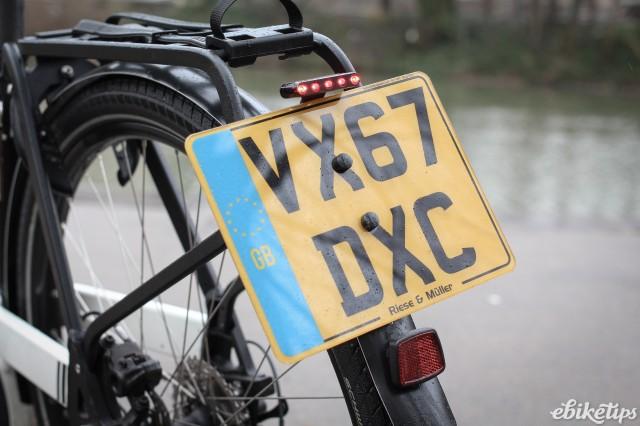

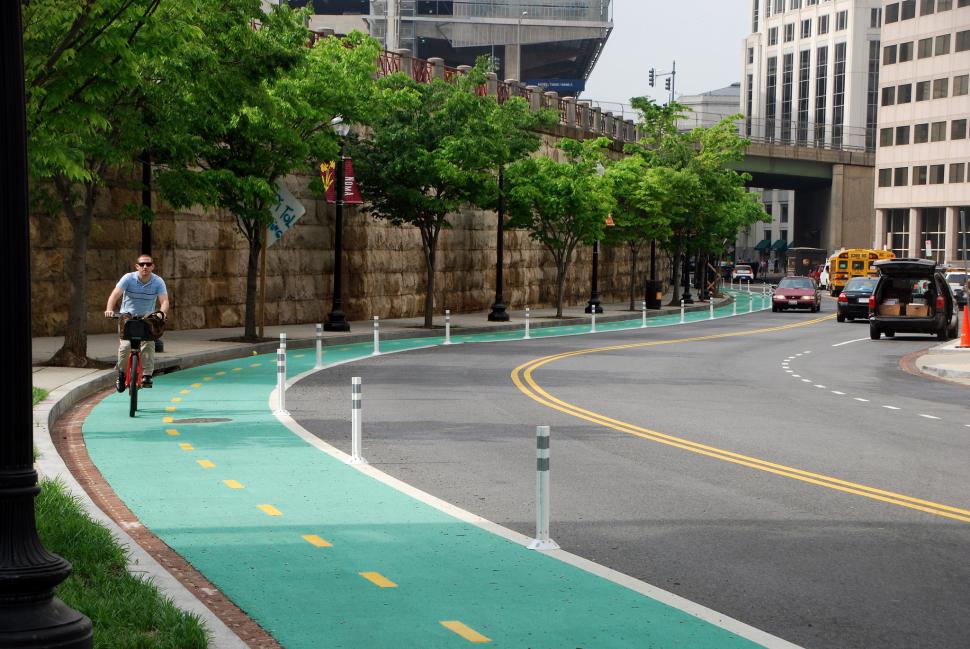
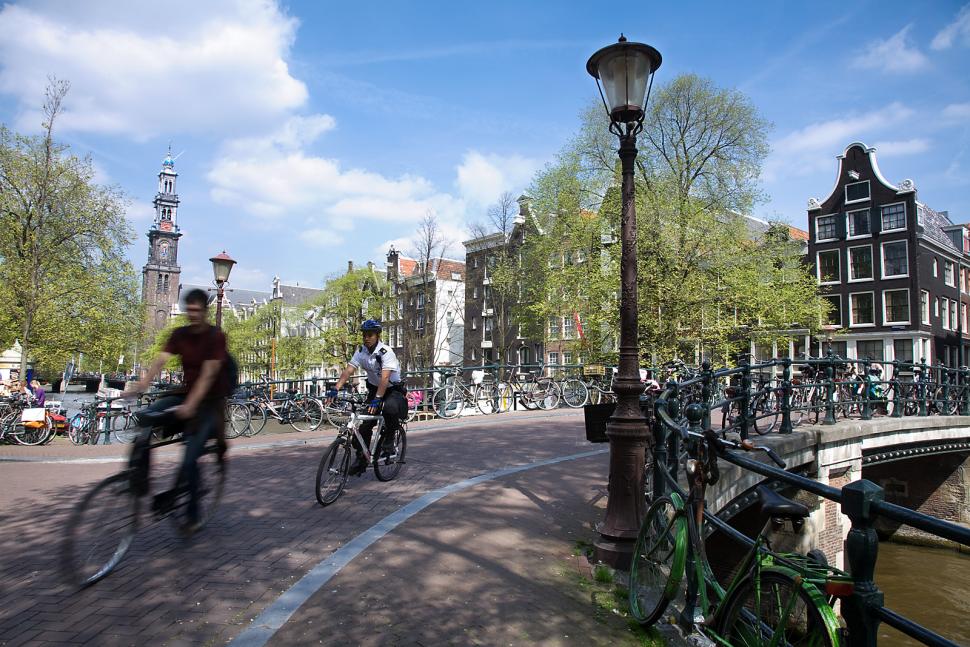
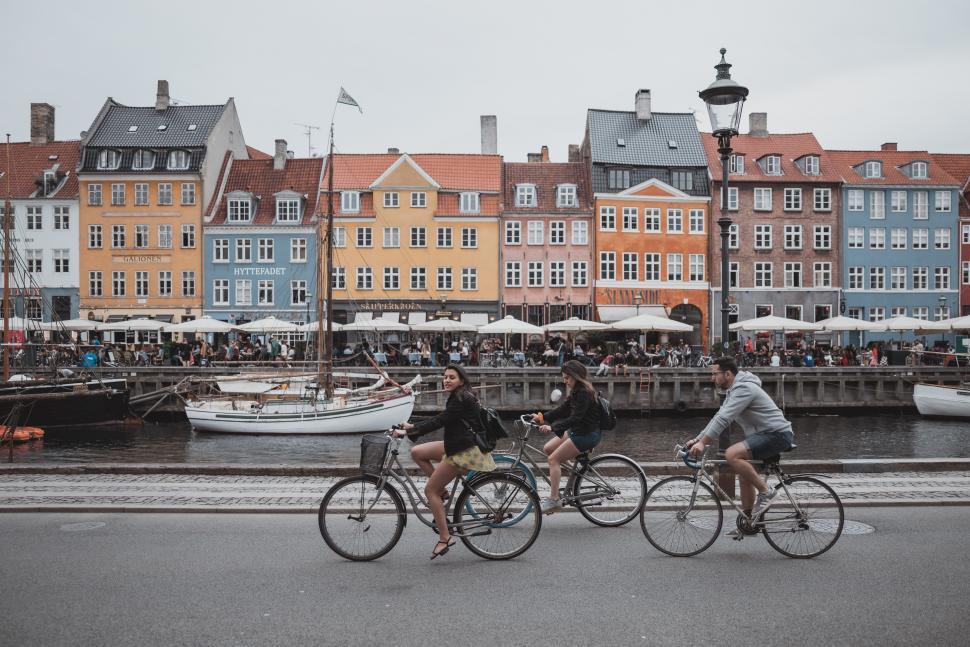
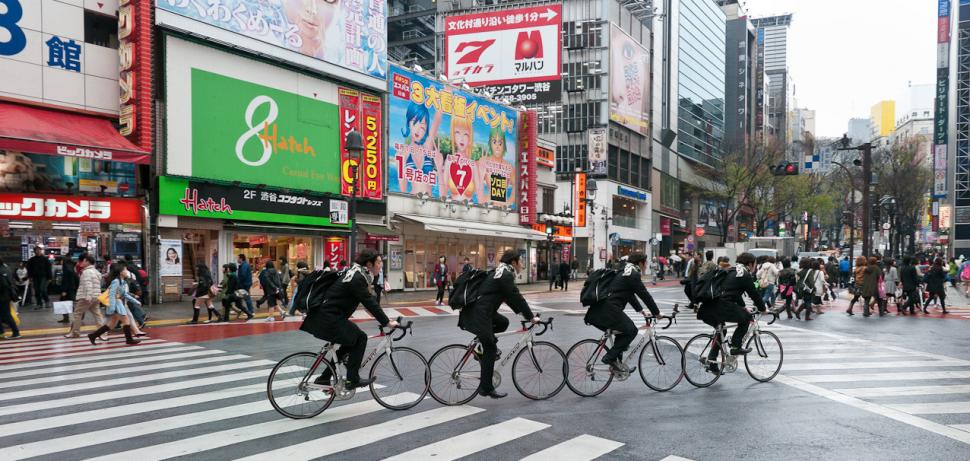
Add new comment
63 comments
Strip them of their citizenship and deport them to their country of last foreign holiday?
There used to be a licencing regime in apartheid South Africa up to the 1970s sometime. You went to your local police station with your bike, they stamped the frame (if not already done) with a unique number, they recorded this number, checked your brakes, and they gave you a metal disc (valid for the calender year) which you were to attach to a prominent part of the bike (eg under your saddle). I assume the annual registration requirement was for insurance purposes and a deterrent to theft.
Remember it well; never knew what is was for but my Dad sorted it and told us to put the discs on the bikes somewhere. On the front axle bolt seemed to work OK. Considering that a juvenile could be sentenced by a magistrate to be caned by the police for a serious offence, I wasn't taking any chances!
Pages